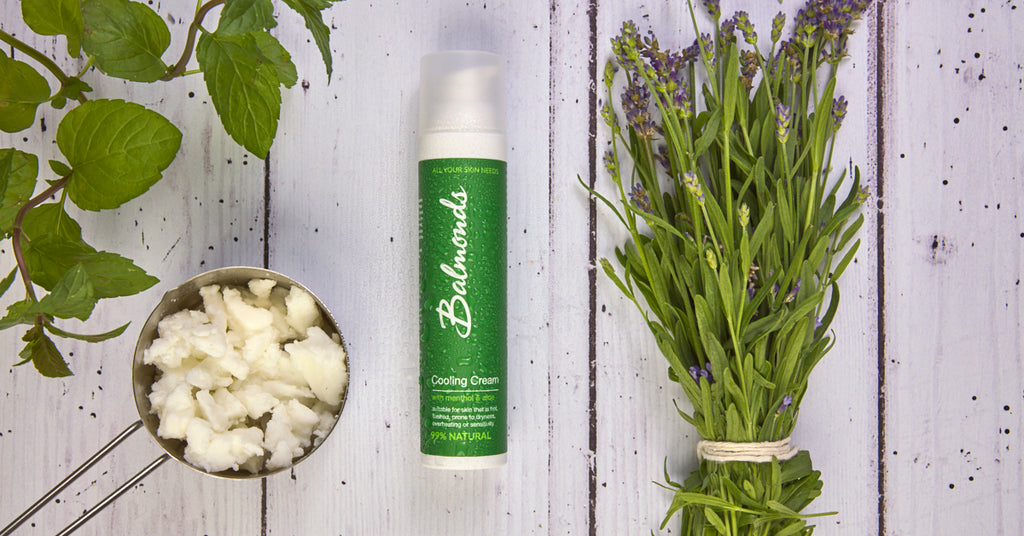
Troubled times, troubled skin? It’s not always external irritants that cause the rashes associated with eczema and other chronic skin problems; sometimes the trigger is psychological rather than physical.
Both dermatologists and psychologists know very well that life’s trickier moments can have a bad effect on the skin. Distressing events, bereavement, stress at work, financial problems and psychological challenges can all result in flare-ups.
So what’s going on? Let's look at five ways in which stress can cause itchy rashes.
1. Stress-induced hives/urticaria
Stress hives (also known as stress urticaria) can result from chronic or temporary stress, anxiety or tension. These kind of hives are intensely itchy, inflamed, bumpy, red and swollen patches of skin, and can appear anywhere on the body.
This isn’t eczema, but the result of your body sending out hormonal distress signals when you’re scared, worried or under extreme stress. These are picked up by the immune system, which acts as if the body is under attack and goes into defence mode. It sends out histamine to try to fight off the attack, and this causes both general inflammation in the body and localised inflammation on the skin in the form of hives, redness and rashes.
The hives can last for a short time ('acute hives') or drag on for weeks ('chronic hives'). If the cause of the stress is a long-term issue - ie unresolved stress at work or financial difficulties - it’s important to find strategies to manage the situation to stop hives making your life an itchy hell.
2. Worsening of existing skin conditions
The chemicals your body produces when it’s under stress make your skin more sensitive and reactive, so even if you’ve been managing your eczema well with diet, natural products, and emollients, a sudden stressful event can cause a flare-up.
3. Effects on self-care of stressful situations
Sometimes being under a lot of pressure, working long days, being anxious or depressed means that you’re not looking after yourself as well as you could be. Your diet suffers, you eat more processed or sugary food, you forget to drink enough water or moisturise regularly throughout the day. All of the carefully-managed strategies for keeping on top of your eczema can start to crumble under pressure, and that can have a bad effect on your skin.
4. Sweat rash
If anxiety causes you to sweat, the minerals and salts in sweat irritate the skin and cause intense itching. Unfortunately, one episode of sweating can cause hives that lasts for days.
5. Increased focus on the itch
When you’re stressed or anxious you’re likely to suffer more from any itch, rash or flare-up than if you weren’t anxious. An itch becomes impossible to ignore; a visible rash dominates your thoughts, making you self-conscious and causing yet more anxiety, creating a vicious circle of inflammation and anxiety.
What can be done?
Here some immediate strategies for calming down anxiety-related skin issues:
- Long, slow out breaths to bring down stress hormones
- Taking time out of the situation in a calm, quiet room
- Antihistamines
- Deploying de-stressing/distraction techniques in the moment (mindfulness, meditation)
- Finding alternatives to scratching, whether distraction techniques or itch-minimising strategies such as getting acrylics or using a comb to itch instead of nails
- Avoiding or preparing for stress triggers in advance
- Using a cooling topical application, such as Balmonds Cooling Cream
- Putting cool - not too cold or too hot - water on the area, either compresses, ice towels or cool showers
- Using a fan to cool down
And here are some longer-term strategies for stress-related itching:
- Physical activity such as swimming, dancing or walking to increase your endorphin levels and decrease cortisol.
- Finding time for meditation, mindfulness or yoga.
- Cutting down on alcohol, sugar, caffeine and other inflammatory substances
- Prioritising sleep - you almost certainly need more than you're getting!
- Talking to your HR manager at work about your workload: health concerns include skin issues and should be taken seriously.
- Finding ways to make self-care easier: reaching out to friends; writing yourself clear to-do lists; getting supermarket deliveries of healthy foods.
- Building your skin's resilience with nourishing, protective, unperfumed skincare.
Remember: if hives result in the swelling of any part of the throat or face, or cause restricted breathing, seek immediate emergency treatment.

